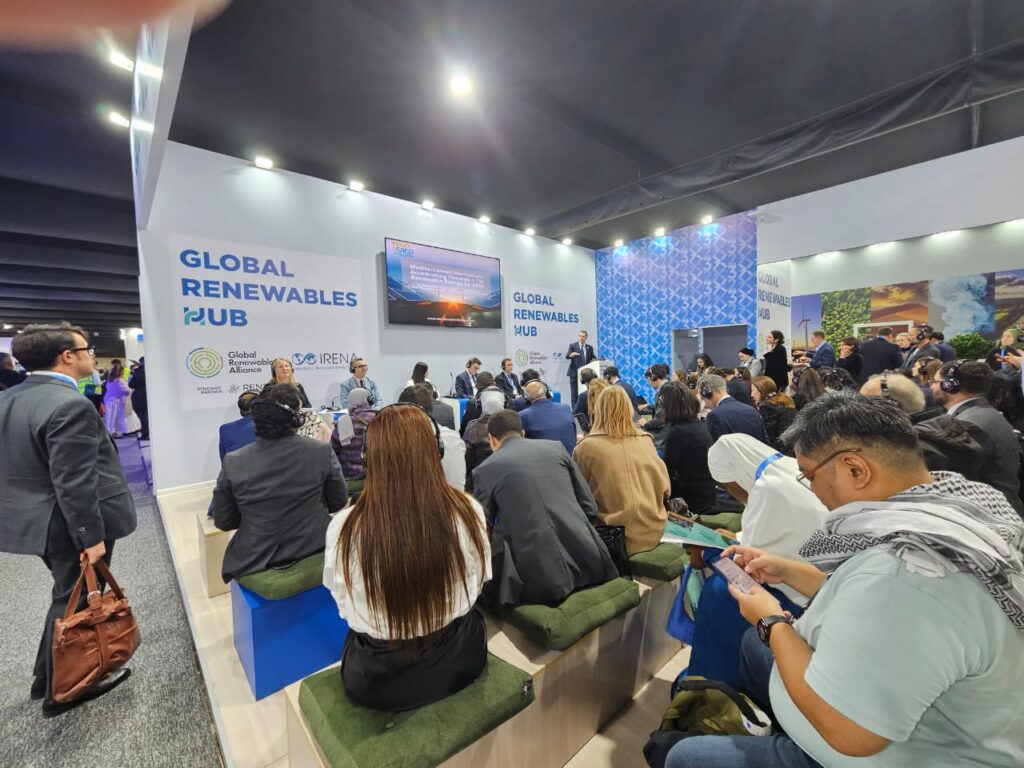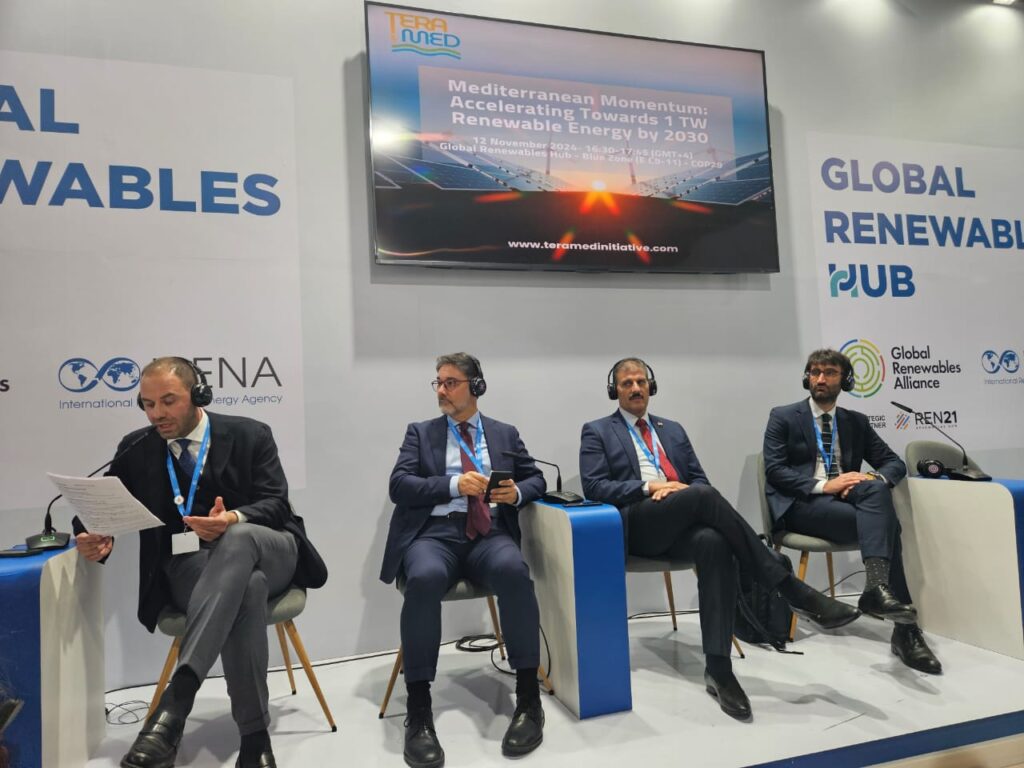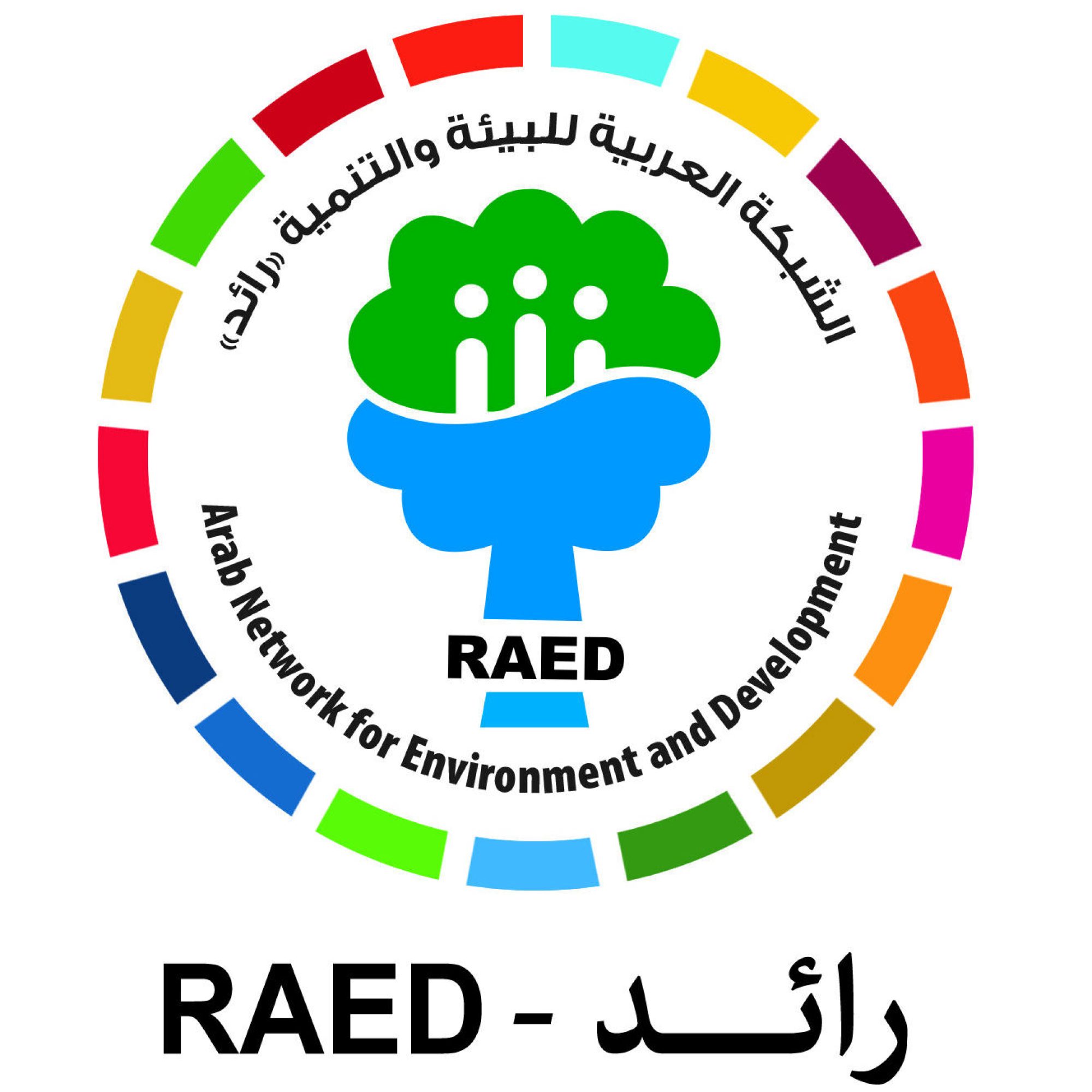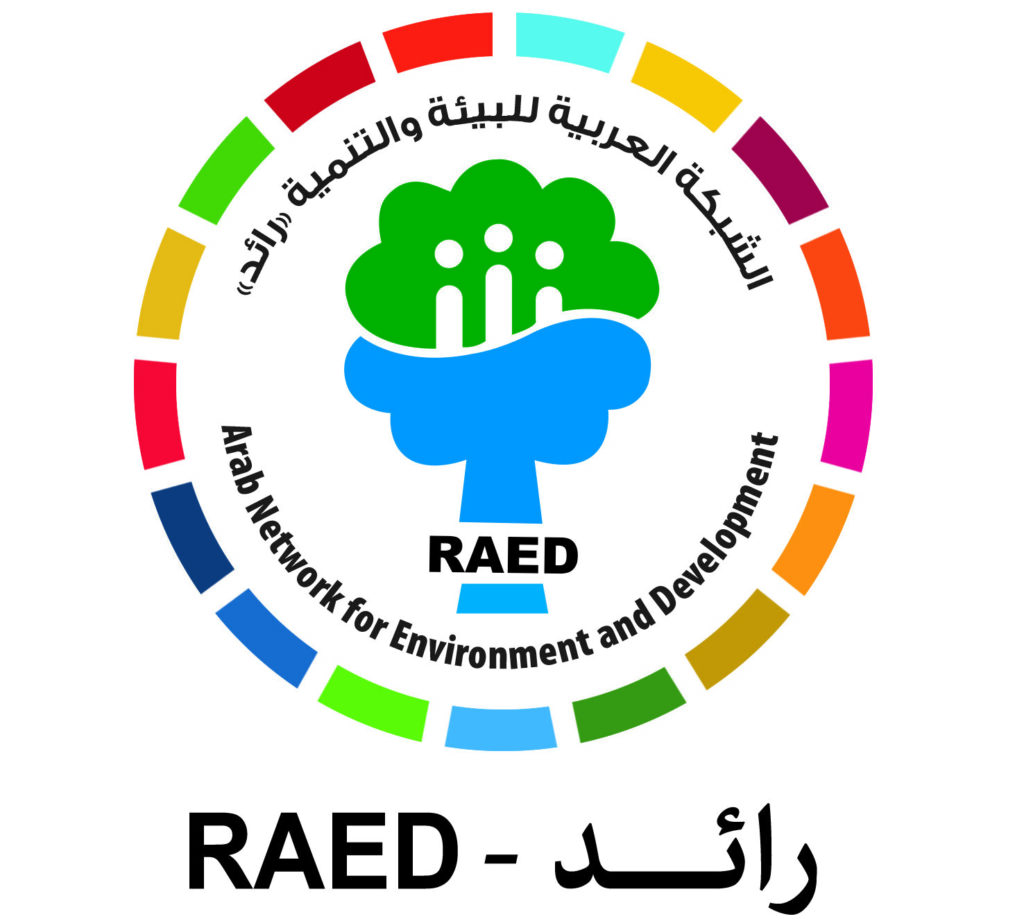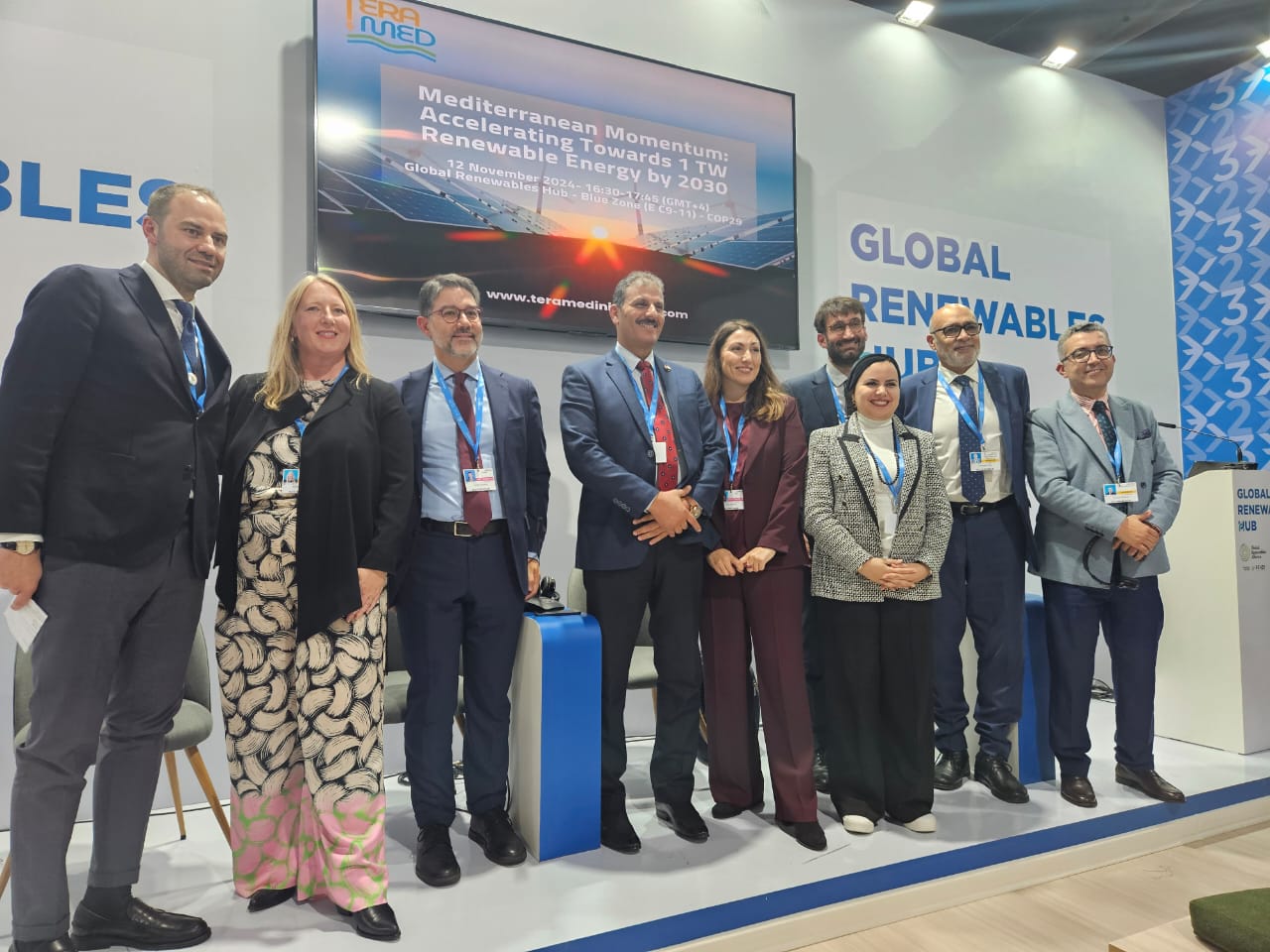High Level Panel on the “TeraMed” Initiative at COP 29 in Baku
Policy Coordination to Foster Regional Cooperation and Establish the Mediterranean as a Model for Sustainable Energy Growth
During the COP 29 summit, held in Baku, Azerbaijan, under the United Nations Framework Convention on Climate Change (UNFCCC), a high-level panel was convened to discuss the “TeraMed” initiative. This initiative aims to produce 1 terawatt of clean energy in the Mediterranean region by 2030. The event gathered ministers, senior officials from regional and international organizations, and representatives from the Arab Network for Environment and Development (RAED), which coordinates civil society organizations across the Arab region to achieve this ambitious goal.
The panel, titled “Mediterranean Momentum: Accelerating Towards 1 Terawatt Renewable Energy by 2030,” began with an opening address by Rebecca Collier, Executive Director of the Renew 2030 Initiative, which operates under the European Climate Foundation and the International Energy Joint Fund. Collier welcomed participants and introduced the session’s speakers.
Francesco La Camera, Director-General of the International Renewable Energy Agency (IRENA), emphasized the critical role of the Mediterranean region in global renewable energy development. He highlighted the area’s potential to drive positive impacts in the European Union, Africa, and the Middle East. Bruce Douglas, CEO of the Global Renewables Alliance, elaborated on the prospects of creating a unified and integrated renewable energy market within the Mediterranean basin.
Grammenos Mastrojeni, Deputy Secretary-General of the Union for the Mediterranean, stressed the importance of regional cooperation and integration to realize the TeraMed initiative’s objectives. Representing the COP 29 presidency, Orkhan Zeynalov, Azerbaijan’s Deputy Minister of Energy, reaffirmed the summit’s commitment to advancing the green energy pledges made during COP 28 and accelerating progress through the TeraMed initiative.
Jawad Khallaz, Co-President of the Mediterranean Clean Energy Network, outlined the initiative’s strategic vision, focusing on achieving renewable energy goals through collaboration. Similarly, Nigyar Arpadarai, COP 29’s High-Level Climate Action Champion, emphasized the need for coordinated policies to foster regional cooperation and position the Mediterranean as a global model for sustainable energy growth.
A key segment of the panel featured a ministerial session titled “Pathways to Energy Transition in the Mediterranean.” This session included the following participants:
- Saleh Kharabsheh, Minister of Energy and Mineral Resources of Jordan.
- Leila Benali, Minister of Energy Transition and Sustainable Development of Morocco.
- Fatma Varank, Deputy Minister of Environment, Urbanization, and Climate Change of Turkey.
- Ahmed Mehina, First Undersecretary at Egypt’s Ministry of Electricity and Renewable Energy, and Head of Strategic Planning.
Each minister provided updates on their country’s progress in renewable energy adoption, highlighting key achievements, priorities, opportunities, and challenges. They also explored pathways for regional cooperation to achieve the TeraMed objectives, discussing strategies to attract investments and forge partnerships, while underlining the importance of financial resources for national and regional energy goals.
Gianni Chianetta, Chair of the Mediterranean Dialogue on Sustainability and Energy, delivered a presentation titled “Call to Action,” launched by the Mediterranean Clean Energy Network. The initiative calls on stakeholders across Mediterranean countries to commit to achieving TeraMed’s goals by promoting investment, enhancing collaboration, and fostering multilateral engagement.
Presentations from Kurt Vandenberg, Director-General for Climate Action at the European Commission; Alessandro Guerini, Director-General for International and European Affairs and Sustainable Finance at Italy’s Ministry of Environment and Energy Security; and Victor Marcos Morell, Director-General for Energy Planning in Spain, detailed their respective countries’ strategies for accelerating the renewable energy transition.
Julia Giordano, Co-President of the Mediterranean Clean Energy Network and Director of Global and Mediterranean Strategy, concluded the panel by summarizing the key takeaways. She highlighted the commitments, cooperative frameworks, and actionable strategies discussed during the session. Giordano reiterated the importance of the “Call to Action” initiated by RAED emphasized the need to establish a clear roadmap to expedite the renewable energy transition in the Mediterranean region.


